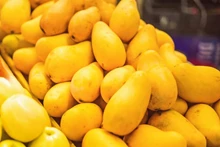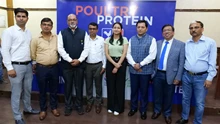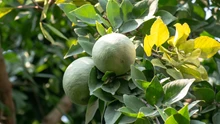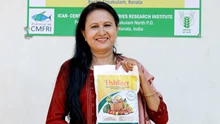
Motherhood is a remarkable journey filled with joy, challenges, and responsibility. Governments worldwide, including India's, acknowledge this and provide a range of support programs for maternal health and well-being.
Themed, "Celebrating Motherhood: A Timeless Bond," this year highlights the enduring connection between mothers and children. The Indian government promises the strength and health of the mother-child bond by providing essential assistance through programs that cover prenatal and postnatal care. These initiatives strengthen mothers' roles and improve society at large. It includes a wide range of assistance, from complete healthcare services to financial aid. They are meticulously crafted to ease the burdens faced by mothers and ensure the holistic well-being of both themselves and their children.
1. Pradhan Mantri Surakshit Matritva Abhiyan (PMSMA)
The Pradhan Mantri Surakshit Matritva Abhiyan (PMSMA) is a government initiative in India aimed at providing free, comprehensive antenatal care to pregnant women nationwide. Operating on the 9th day of each month, it ensures access to medical attention and services for pregnant women, including those who have not registered for antenatal care or have missed appointments.
The program offers a minimum package of services during the 2nd or 3rd trimesters, focusing on detecting and managing high-risk factors. It involves OB-GYN specialists, radiologists, physicians, and private-sector doctors. Special emphasis is placed on early detection and management of high-risk pregnancies, with indicators marked on Mother and Child Protection Cards. A National Portal and Mobile Application aid engagement with the private and voluntary sectors, while 'IPledgeFor9' Achievers Awards recognize contributions to PMSMA across states and districts.
2. Pradhan Mantri Matru Vandana Yojana (PMMVY)
The Pradhan Mantri Matru Vandana Yojana (PMMVY) is a government initiative in India that hopes to offer financial aid to pregnant and lactating mothers. Its goal is to mitigate income loss during maternity and encourage better healthcare practices among these women. Eligibility includes pregnant and lactating mothers not employed by the Central/State Government or PSUs, and those not receiving similar benefits elsewhere. Women expecting their first child since January 1, 2017, qualify. The scheme provides a cash incentive of Rs. 5,000 distributed in three installments, with the first installment given under PMMVY and the remaining Rs. 1,000 under Janani Suraksha Yojana (JSY) post institutional delivery.
3. Janani Suraksha Yojana (JSY)
Janani Suraksha Yojana (JSY) is a maternal health program launched under the National Health Mission to decrease maternal and neonatal mortality rates. Established on April 12, 2005, by the Prime Minister, it aims to encourage institutional delivery, particularly among economically disadvantaged pregnant women in all states and Union Territories, focusing on Low Performing States (LPS).
Eligibility for cash assistance varies by state performance: in LPS, all pregnant women delivering in government health centers or accredited private institutions qualify, while in High Performing States (HPS), eligible beneficiaries include women from Below Poverty Line (BPL)/Scheduled Caste (SC)/Scheduled Tribe (ST) categories.
JSY integrates cash assistance with delivery and post-delivery care, with Accredited Social Health Activists (ASHAs) playing a vital role, particularly in low-performing states, as intermediaries between the government and pregnant women. Cash assistance is disbursed to cover delivery and antenatal care costs, mainly at health institutions, facilitated by ASHAs or designated health workers. In accredited private institutions, the cash is distributed directly to beneficiaries through authorized channels.
4. Indira Gandhi Matritva Sahyog Yojana (IGMSY)
The Indira Gandhi Matritva Sahyog Yojana (IGMSY) is a maternity benefit program in India started by the Government in 2010 and managed by the Ministry of Women and Child Development. It offers conditional cash transfers to pregnant and lactating mothers aged 19 or older during their first two live births, aiming to offset income loss during childbirth and childcare. The scheme promotes safe delivery, proper nutrition, and breastfeeding, providing Rs. 6,000 cash benefit per eligible beneficiary, as per the National Food Security Act, 2013. However, it doesn't cover organized sector employees already receiving maternity benefits.
5. Integrated Child Development Services (ICDS)
The Integrated Child Development Services (ICDS) Scheme, launched in 1975, is a significant early childhood development program in India. It aims to provide preschool education and tackle issues like malnutrition, morbidity, and mortality among children.
The scheme targets children under 6 years old, pregnant and lactating mothers, and women aged 15-45 years. Its objectives include improving the health and nutrition of children, supporting their overall development, reducing mortality and malnutrition rates, and coordinating efforts across departments. Services provided include supplementary nutrition, immunization, health check-ups, referral services, preschool education, and nutrition and health education.
6. Janani Shishu Suraksha Karyakram (JSSK)
The Janani Shishu Suraksha Karyakram (JSSK) is a government scheme introduced by the Ministry of Health and Family Welfare aimed at providing free and comprehensive healthcare services to pregnant women and newborns who deliver in government health facilities.
Since its launch in June 2011, it has covered various aspects of care, including free delivery (including Caesarean section), drugs, diagnostics, diet, blood provision, exemption from user charges, and transportation to and from health institutions. Additionally, it has been extended to cover treatment for sick newborns and infants, ensuring they receive necessary medical attention and support without financial burden.
7. National Creche Scheme
Earlier known as Rajiv Gandhi National Creche Scheme are sponsored scheme by the Centre implemented by the Ministry of Women and Child Development. It provides daycare facilities for the children of working mothers, aiming to enhance their health, nutrition, and overall development. It targets children aged 6 months to 6 years, whose mothers are employed for at least 15 days a month or 6 months a year, in both rural and urban areas.
The scheme charges fees based on family income, ranging from ₹20 to ₹200 per child per month. Required documents include the child's birth certificate and proof of the mother's employment in a public organization for the last 6 months.
As we celebrate Mother's Day, let us not only cherish the special bond we share with our mothers but also acknowledge and honor the countless mothers around the world who dedicate themselves wholeheartedly to nurturing and uplifting the next generation. Let's honor the timeless love and dedication of mothers everywhere this Mother's Day.











